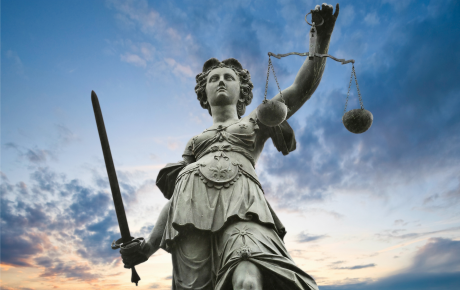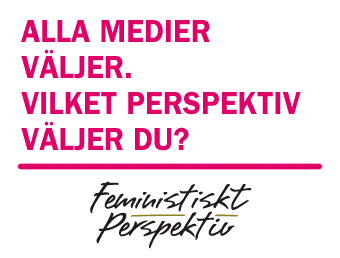
Fru Justitia.
UN support for conspiracy theory on Assange rape case
2020-03-06 | Jenny Rönngren

INTERNATIONAL
”Just before the trial in London, the charge of rape in Sweden turned out to be fabricated.” Again, in videos and newspaper articles, false statements about the closed legal process against Julian Assange on sexual offenses are circulated. The source this time is the UN Special Rapporteur on Torture, Nils Melzer.
Read the complete interview with Nils Melzer, UN Special Rapporteur on Torture and Other Cruel, Inhuman and Degrading Treatment or Punishment.
In a statement on May 31, 2019, UN rapporteur Nils Melzer warns of the consequences of extradition of Julian Assange to the United States. He has then visited Assange in prison and concluded that Assange is showing signs of being subjected to prolonged psychological torture. According to Melzer, the responsible are the British, Swedish, American and Ecuadorian governments.
In the case of Sweden, the alleged complicity is based mainly on deficiencies in the legal process against Assange regarding sexual offenses. In an exchange of letters with the Swedish government, Melzer questions the rape allegation and the evidence, as well as argues that the Swedish authorities never intended to investigate the crimes, but acted in agreement with the other governments. This in order to keep Assange in place so he could one day to be extradited to the United States, and to discourage others from revealing the abuse of state power.
These statements have been reported particularly in international media, and received renewed attention when the extradition trial started last week. After Nils Melzer’s appearances in German media 130 cultural figures, with journalist Günther Wallraff as an initiator, signed a call of support for Assange. Also in Sweden, well-known debaters refer to Melzer’s conclusions about the sexual crime case in an attempt to get Sweden to act against the extradition.
Far from reality
When the Swedish government rejects his claims and conclusions, mainly with reference to the independence of the judiciary, Melzer writes a new letter with further details, among them leaked parts of the preliminary investigation. He also points to a possible conspiracy between one of the plaintiffs, her lawyer Claes Borgström, two of the police officers, a prosecutor and former Minister of Justice Thomas Bodström, citing that they were either members of the same party or shared political agenda.
– It is such a conspiracy theory only those who are farthest from reality can formulate. That is what makes me think that the UN representative drags the UN’s credibility and reputation down by expressing himself in that way, says Claes Borgström, who has represented one of the women all these years.
– I can conclude that it is this old myth building and the inaccurate information that have been reoccurring and thus also the UN is taking up, through Melzer: That there was a plot from the beginning, that it never happened and that they did not report Assange for rape. The case is that rape falls under public prosecution, Borgström says.
One allegation which, according to Nils Melzer, suggests fabrication is the erroneous dating of the first hearing with one of the women. The hearing was held on a Friday night and was not transcribed until Monday, but could at that point not be uploaded into the system with the correct date. This appears in a memo from the police that Assange’s defense team leaked. The exchange of letters between the police who held the hearing and her boss about how the matter should be handled is interpreted by Melzer as if there had been two interrogations and that the first version had been deleted. In addition he refers to text messages that this plaintiff supposedly have sent, but the only source of these messages is Assange and his defense.
Unreasonable consequences
Regardless of what the plaintiffs themselves denominate what they have been subject to, three different courts – the District Court, the High Court and the Supreme Court – have concluded that he is likely to have committed the acts he is suspected of and that in at least one of these cases they amounted to rape. Melzer’s image is far from complete, according to Borgström:
– There are some materials he doesn’t know about. And then there is a lot of material that he ignores. It is a scandal that the UN representative expresses himself in the way he does. That he cherishes the false rumors that have been passed around, and joins this undisguised near-mob that drives this issue.
He believes that ignorance about the Swedish legal system is one thing, another is the hatred of women that has permeated the case. Not least through the smear campaigns that the plaintiffs have been subject to.
– They mix two things together. One is the sexual abuse he is suspected of, which he probably committed against these two women. The second is the deportation to the United States that none of the plaintiffs support. On the contrary, they have been opposed to it. They were Wikileaks supporters when they met Julian Assange. There is not a trace of political background in their descriptions, they have simply told what they have been through.
It has now been ten years and the plaintiffs are still subject to violations and slander.
– The consequences have been unreasonable. I have been around for a long time and have never experienced the plaintiffs in a criminal investigation being so exposed as in this case. They have probably been subjected to crimes, if one speaks with the judiciary. Since then, they have instead been regarded as villains, says Claes Borgström.
A lie became truth again
A central claim is that prosecutor Marianne Ny did not try to interrogate Julian Assange before him leaving Sweden. This was dismissed as early as February 2011, during the trial of the European Arrest Warrant issued by Ny to get Assange back to Sweden. Assange’s then defense lawyer Björn Hurtig changed his statement already during the trial and received a warning from the Swedish Law Society for misleading the British court.
In several interviews, Nils Melzer states that he has taken part of ”all the documents”, and that this has been facilitated by his ability to speak Swedish. The judgment in which the erroneous information was corrected does not belong to the documents that he had access to when he wrote to the Swedish government, despite it being readily available to everyone on the Swedish Prosecutor’s website.
In an in-depth interview, Melzer admits that this weakens his criticism of the prosecutor, but he maintains the overall image. Soon it is clear that his statements and conclusions are partisan. That is how the UN rapporteur’s mission is designed, which is a matter of course for Melzer, but perhaps not for the wider audience taking part of his statements.
– I can only become active if I receive a request, and that request was from Assange’s legal team. I take the evidence they give to me, and I submit it to the governments and they have to respond to me. That’s how it works. As a torture rapporteur I can only address my concerns to the government, I am not allowed to contact the individual party. If governments do not cooperate, it is a problem, he notes.
Prepared to be disproved
– My complaint really is about how the government has dealt with this case. It is not for me to pass judgement in a criminal case, to say if mister Assange is guilty or innocent. I am only mandated to comment on what the government has done, all governmental authorities, which includes the courts, judiciary, the parliament and yes, the executive government.
Yet, in letters as well as interviews, Nils Melzer reiterates that the women would have acted differently than they allegedly did if they had actually been subject to sexual offenses. When asked, with his expertise in human rights abuses, if he never encountered a plaintiff who behaved irrationally or did not realize that what happened to them was a crime until later, he answers with determination that such a pattern was not relevant in this case.
– I have to base myself on the evidence that have been made available to me. If you can present me with evidence that can convince me otherwise, I am more than ready to acknowledge that I got it wrong. I have no stakes personally in this case, apart from that I really do require that states respect the rule of law, Nils Meltzer emphazises.
Nils Melzer claims that he never stated that any of the plaintiffs were involved in the conspiracy against Assange. What he means is that they have been instrumentalized by Swedish authorities that wanted to access him.
– This is a very difficult case and it is very difficult to avoid all kinds of different interpretations. I have to say that myself, I have gone through an evolution in discovering things and I want to make clear that I remain open to any information that comes. What matters to me is the truth in this and that the states are respecting the law.
System failure?
The government, the prosecutor’s office and the police have chosen not to comment further on Nils Melzer’s claims and conclusions. Neither Claes Borgström nor other lawyers that Feminist Perspective have spoken to see any real reasons for that. According to Mårten Schultz, professor of civil law at Stockholm University, there are certainly a few legitimate reasons for criticism. This concerns the switching between various prosecutors, that the judiciary so quickly released the information that Julian Assange was suspected of sexual offenses and perhaps also that Sweden much earlier should have done more to move things forward.
– We don’t usually send prosecutors to hold interrogations when rape suspects flee abroad. We wait for them and hope they will come back. This is a quite special case and then maybe it should have been dealt with a little earlier to do what was later done, Schultz notes.
All in all, he believes that Melzer ”did not endeavor to get as wide and nuanced a picture as possible but on the contrary ended up in a kind of Assange camp”. He does not buy the reference to the mandate as such. He believes that Melzer nevertheless has a responsibility not to distribute false images:
– It is unreasonable to disseminate reports in the name of the UN based on a unilateral accusation from one person that the other has done something wrong and then put the UN stamp of approval on it without verifying that the information is accurate. That in itself is an unlawful arrangement. If he is right about that being the case, then there is something wrong with the whole system.
When Feminist Perspective reaches Borgström’s client, she points out that leaks can harm people and sees an irony in that precisely leaks is on of the things that Assange and Melzer are calling torture in their allegations against Sweden. Most likely is that claims that have never been confirmed or rejected will continue to flourish, without ever being tried in court:
– Melzer claims that it is the Swedish state and the prosecutor who denied me that right but it is not, it is Julian who denied me that right by staying away. Melzer’s report becomes like a verdict in the media tribunal and we never got a verdict in the legal process.
Kommentarer
Du måste vara inloggad för att kunna lämna en kommentar.
























MEST KOMMENTERAT
SENASTE KOMMENTARERNA
Om Var Grupp 8 en feministisk organisation?
Om #bildskolan 21: Att äta Den Andre
Om #bildskolan 21: Att äta Den Andre
Om Porr handlar om betalda övergrepp
Om Nobels fredspris till kampanj för att avskaffa kärnvapen
Om Feministiskt perspektiv öppnar arkivet och startar på nytt!
Om Rödgrönt ointresse för fred och nedrustning borde oroa många
Om Var inte målet att vi skulle jobba mindre?
Om Feministiskt perspektiv öppnar arkivet och startar på nytt!
Om Feministiskt perspektiv öppnar arkivet och startar på nytt!
MEST LÄST